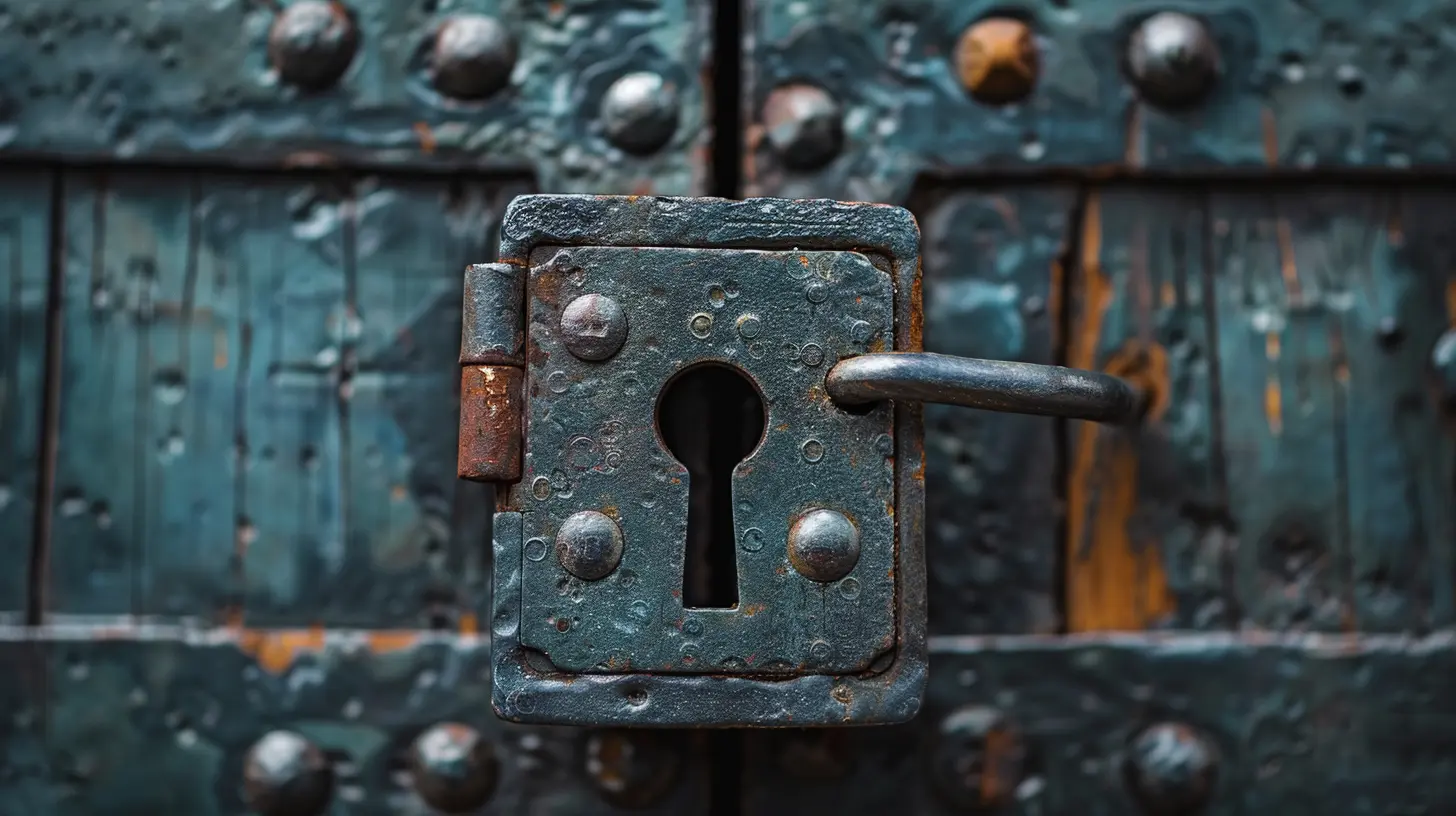Why Strong Password Management is Still Critical in Today's Cyber World
27 June 2025
In a world where we keep a large chunk of our lives online, we often overlook one of the simplest yet most critical aspects of online security — the password. It's easy to think that password security might be old news, but trust me, it’s more relevant than ever. While technologies like biometrics and two-factor authentication (2FA) have become more common, strong password management is still the backbone of online security. Without strong passwords, you're essentially leaving the front door to your digital life wide open.
So, why should we still care about password management in today’s high-tech world? Let’s dive in.

The Growing Threat of Cybercrime
Cybercrime is at an all-time high, and it’s not slowing down. Hackers are getting smarter, more efficient, and more persistent. They have sophisticated tools that can crack weak or commonly used passwords in seconds. According to reports, billions of user credentials are leaked or sold on the dark web every year. Scary, right?But here’s the thing: no matter how advanced these hacking techniques get, there’s one thing that remains constant — strong passwords make their job a lot harder. Think of your password like the lock on your front door. Sure, a determined burglar might still break in, but a sturdy lock is far better than leaving the door wide open.
Password Attacks Are Evolving
It’s not just about some hacker sitting in a basement trying to guess your birthday. Modern password attacks are automated, rapid, and often invisible. Hackers now use techniques like brute force attacks, credential stuffing, and phishing scams to steal your information.- Brute Force Attacks: This is the digital equivalent of trying every key in the lock until one fits. Hackers run software that tries millions of password combinations as fast as possible.
- Credential Stuffing: This happens when a hacker uses a list of stolen usernames and passwords (often obtained from a previous data breach) and tries to log into multiple sites with the same credentials. If you’re reusing passwords, you’re a sitting duck.
- Phishing: While this isn’t a direct attack on your password, phishing scams trick you into giving up your credentials voluntarily. These scams are getting more sophisticated by the day.
Knowing these threats exist is half the battle, but having a strong password is your best line of defense.

Why “123456” Won’t Cut It Anymore
It sounds almost laughable, but some of the most commonly used passwords are still things like “123456,” “password,” and “qwerty.” If that’s you, we need to talk.Using simple, easy-to-guess passwords is like locking your front door with a piece of tape. You might feel secure, but it won’t hold up to even the most basic attempts to break in. And don’t think you’re safe just because you aren’t “important” enough to hack. The truth is, hackers often use automated systems that target anyone and everyone. If your password is weak, you’re just another easy target.
Characteristics of a Strong Password
So, what makes a password “strong”? Here’s a quick breakdown:- Length: The longer, the better. Aim for at least 12-16 characters. Some experts even recommend 20 characters or more.
- Complexity: Use a mix of uppercase letters, lowercase letters, numbers, and special characters. Avoid obvious substitutions like “P@ssw0rd.” Hackers are onto that trick.
- Unpredictability: Avoid using easily guessable information like birthdays, names, or common words. A good password should look like a random string of characters.
- Uniqueness: Never reuse passwords across different accounts. If one account gets compromised, you don’t want the hacker to have access to everything.

Password Managers: Your Best Friend
Now, I know what you’re thinking: “How am I supposed to remember all these long, random passwords?” That’s where password managers come in.A password manager is like a digital vault that stores all your passwords securely. It can generate complex passwords for you and autofill them when you log into your accounts. This way, you only need to remember one master password — the key to your vault.
Using a password manager is hands-down one of the easiest and most effective ways to manage your passwords. It removes the temptation to reuse passwords and makes it easy to create complex, unique passwords for every account.
Popular Password Managers
Some popular password managers include:- LastPass
- Dashlane
- 1Password
- Bitwarden
These tools are lifesavers, especially if you have dozens (or even hundreds) of accounts online.

The Role of Two-Factor Authentication (2FA)
If passwords are the lock on your door, two-factor authentication (2FA) is like adding a deadbolt. It’s an extra layer of security that requires you to verify your identity in a second way, usually through a code sent to your phone or email.Even if a hacker manages to get your password, they’d still need that second factor to access your account. While 2FA isn’t bulletproof, it’s an excellent way to reduce the risk of your account being compromised.
Types of 2FA
- SMS-Based 2FA: A code is sent to your phone via text message. While convenient, it’s not the most secure option. Hackers can intercept text messages through SIM-swapping attacks.- Authenticator Apps: Apps like Google Authenticator or Authy generate time-sensitive codes on your phone. This method is more secure than SMS-based 2FA.
- Hardware Tokens: Devices like YubiKey offer the most secure form of 2FA. You plug the token into your computer or phone to verify your identity.
While 2FA is an awesome addition to strong password management, it’s important to remember that it’s not a replacement for a good password. You still need both.
The Risks of Poor Password Hygiene
What happens if you don’t take password management seriously? Well, the consequences can be severe.Data Breaches
A data breach can expose your personal information, including your passwords, to hackers. If you’re reusing passwords across multiple accounts, a breach at one site can give hackers access to all your accounts. This domino effect is why using unique passwords is so critical.Identity Theft
Once a hacker has your credentials, they can impersonate you, drain your bank account, make purchases in your name, or even commit crimes under your identity. The damage caused by identity theft can take years to repair, not to mention the stress and financial cost involved.Ransomware Attacks
In some cases, hackers gain access to your data and hold it for ransom. If you don’t pay up, they threaten to delete or leak your information. These kinds of attacks are becoming increasingly common, and weak passwords make it easier for hackers to gain access in the first place.
Password Management Myths
Let’s clear up a few common misconceptions about password management.Myth #1: “I don’t need a strong password because I’m not a target.”
This is a common excuse, but it's way off base. Remember, hackers don’t always target specific individuals. They often use automated scripts to attack large numbers of people at once. If your password is weak, the script will find you.Myth #2: “I change my password all the time, so I’m safe.”
Frequent password changes can actually lead to weaker security if you’re just making small variations of the same password. Instead of changing your password regularly, focus on creating a strong, unique password from the start.Myth #3: “My account is protected by 2FA, so I don’t need a strong password.”
2FA is great, but it’s not foolproof. If a hacker manages to bypass 2FA (and yes, it happens), having a weak password leaves the door wide open.Future Trends in Password Management
While we’re still heavily reliant on passwords today, the future of password management is evolving. Technologies like biometrics (fingerprints, facial recognition) and passwordless logins are gaining traction. However, these methods are not yet foolproof or universally adopted. For the foreseeable future, strong password management will remain a critical part of staying safe online.Biometrics can be convenient, but they also come with their own risks. For example, if your fingerprint data gets hacked, you can’t exactly change your fingerprint like you would a password. So, while these technologies are promising, they’re not a replacement for good password hygiene.
Conclusion: Don’t Skimp on Security
At the end of the day, strong password management is still one of the easiest and most effective ways to protect yourself in the digital world. While it might seem like a hassle to create and remember complex, unique passwords, tools like password managers make the process a lot simpler.Cyber threats are constantly evolving, but a strong password is your first line of defense. Don’t underestimate its importance — your personal and financial information depends on it.
all images in this post were generated using AI tools
Category:
CybersecurityAuthor:

Gabriel Sullivan
Discussion
rate this article
1 comments
Abram Brown
While advancements in cybersecurity tools are promising, the human element remains the weakest link. Effective password management not only mitigates risks but also fosters a culture of vigilance. Prioritizing strong passwords is essential for safeguarding personal and organizational data against evolving threats.
July 5, 2025 at 11:45 AM

Gabriel Sullivan
Thank you for highlighting the crucial role of human behavior in cybersecurity. Strong password management is indeed vital for protecting data and cultivating a proactive security culture. Your insights emphasize the need for ongoing awareness and education in this area.


